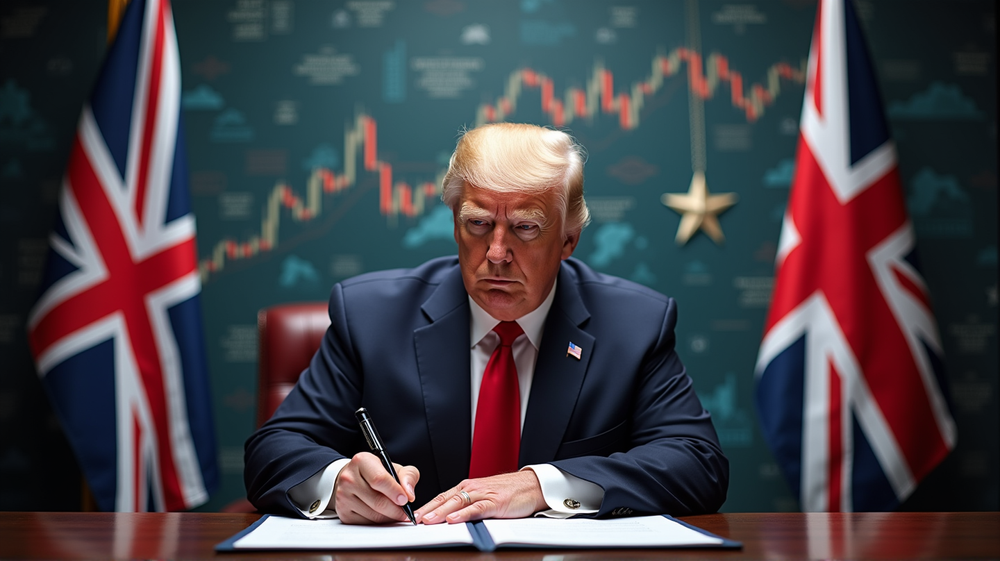In a move that signals both strategic foresight and the strengthening of international ties, US President Donald Trump has unveiled a landmark trade agreement with the United Kingdom. This announcement marks the first significant trade deal since the initiation of his controversial global tariffs policy.
A New Chapter in US-UK Relations
This agreement, described by Trump as “full and comprehensive,” promises to cement the relationship between the United States and the United Kingdom for the foreseeable future. According to the President, the historic alliance between the two nations played a crucial role in making the UK the first recipient of such an announcement. “It’s a great honor to cement our relationship with the United Kingdom,” Trump remarked triumphantly on his Truth Social platform.
The Wall Street Journal, however, referred to the accord as a “framework” agreement, hinting at complexities yet to be resolved in reaching a full-fledged free trade deal needed by the UK post-Brexit. As stated in Times of India, this deal stands as more of a strategic foundation than a complete policy structure.
Background and Implications
British Prime Minister Keir Starmer, poised to address the British side, emphasized the paramount importance of acting in the national interest. Starmer’s determination to secure favorable terms for workers, businesses, and families aligns with Britain’s aspirations to renew and secure its global trade standing post-Brexit.
Interestingly, the pursuit of this agreement comes amidst an international climate shaped by Trump’s imposition of a sweeping 10 percent tariff on imports, a move that briefly halted the stronger 25 percent tariffs across major industries awaiting negotiations. This has positioned Britain to strive for an accord with the US ahead of an upcoming EU-UK summit, with the EU also vying for a similar agreement amid its unique challenges.
Economic Insights and Predictive Analysis
Economists like Jonathan Portes and analysts such as Jim Reid offer a mixed outlook on the economic potential of this agreement. Portes suggests the deal focuses more on minimizing damage from tariffs than it does on economic stimulation. Reid, on the other hand, points out the potential framework nature of the agreement and the implications of maintaining or abolishing the 10 percent baseline tariffs.
The news has rippled through economic markets, with the Bank of England responding by cutting its interest rate by a quarter point, foreseeing potential impacts on global economic growth.
Future Prospects
Future prospects for a US-UK trade revival appear cautiously optimistic, as reports surface of potential concessions on food and agricultural imports in exchange for relief in critical export industries like automotives, pharmaceuticals, and aerospace. The vibrant UK film industry, too, remains on Trump’s radar as negotiations unfold.
With negotiations ongoing and international economic landscapes shifting, the details of the agreement—and its ultimate success—remain a topic of global interest and anticipatory speculation.












